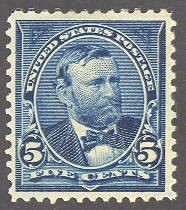In one of the essential conveniences of modern life, New York is far behind London; but the blame lies, not with the city, but with the United States. Its postal arrangements are at best erratic, at worst miserable. Letters which would be delivered in London in three or four hours take in New York anywhere from six to sixteen hours. It was a long time before I realised and learned to allow for the slowness of the postal service. At first I used mentally to accuse my correspondents of great dilatoriness in attending to notes that called for an immediate reply. On one occasion I posted in Madison Square at 3 P.M. a letter addressed to the Lyceum Theatre, not a quarter of a mile away, suggesting an appointment for the same evening after the play. The appointment was not kept, for the letter was not delivered till the following morning! To ensure its delivery the same evening, I ought to have put a special-delivery stamp on it--price fivepence--in addition to the ordinary two-cent stamp. No doubt it is the universal employment of the telephone in American cities that leads people to put up with such defective postal arrangements.Emphasis added. Once upon a time, large cities had multiple mail deliveries every day. Typical of a Brit to expect a flock of messengers to deliver his urgent missives when telephones are available.
But it is not only within city limits that the United States Post Office functions with a dignified deliberation. The ordinary time that it takes to write (say) from New York to Chicago, and receive an answer, might be considerably reduced without any acceleration of the train service. It sounds incredible, but it is, I believe, the case, that the simple and eminently time-saving device of a letter-box in the domestic front-door is practically unknown in America. I did observe one, in Boston, so small that a fair sized business letter would certainly have stuck in its throat. One evening I was sitting at dinner in a fashionable street in New York, close to Central Park, when I was startled by a distinctly burglarious noise at the window. My host smiled at my look of bewilderment, and explained that it was only the letter-carrier; and, sure enough, when the servant came into the room she picked up three or four letters from the floor. The postman was somehow able to reach the front window from the "stoop," open it, and throw in the evening's mail--a primitive arrangement, more suggestive of the English than of the American Gotham. Even the gum on the United States postage-stamps is apt to be ineffectual. When you are stamping letters in hot haste to catch the European mail, you are as likely as not to find that the head of President Grant has curled up and refuses--most uncharacteristically--to stick to its post.
The fee for special delivery in 1899 was 10 American cents--five times the postage for a letter. Mr. Archer mentions a postage stamp portraying President Grant. It probably was the 5 cent dark blue of the Bureau [of Engraving and Printing] issue of 1898, which paid the postage for the international letter rate. So this would be the stamp Mr. Archer used to write to his friends back in Great Britain:

United States #281: found at zillions of stamps

1898 was the year the United States Post Office changed the color of stamps to meet the requirements of the Universal Postal Union. Earlier 5 cent Grant stamps were chocolate brown.
Father, let me dedicate All this year to you
In whatever earthly state You will have me be
Not from sorrow, pain, or care Freedom dare I claim;
This alone shall be my prayer: Glorify Your name.
--from New Year's Hymn by Lawrence Tuttiett, 1864 (alt.)
In whatever earthly state You will have me be
Not from sorrow, pain, or care Freedom dare I claim;
This alone shall be my prayer: Glorify Your name.
--from New Year's Hymn by Lawrence Tuttiett, 1864 (alt.)
